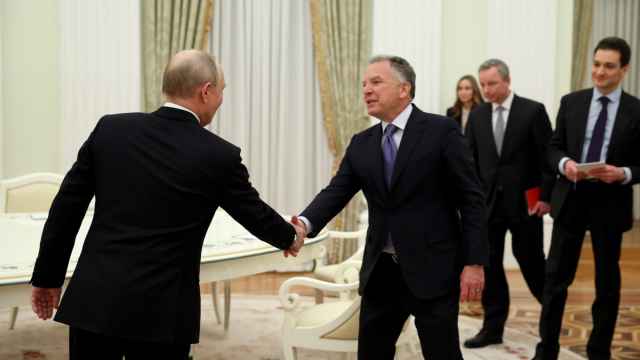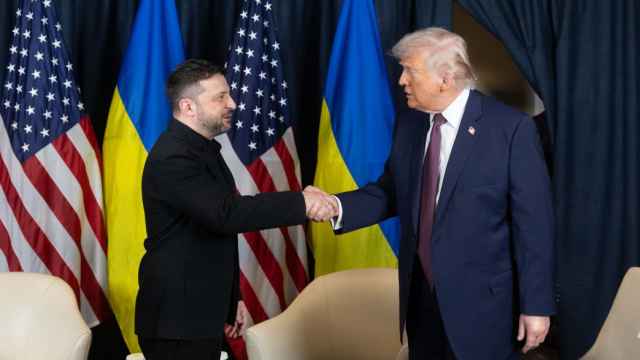As a specialist in the treatment of trauma, I am often asked about the genesis of violence. Some of the U.S. shootings in recent years have been carried out by people who were bullied at school or were angry with teachers, people in authority or disgruntled employees. Other perpetrators carry deep-seated rage toward a family member because of abuse or neglect. Then there are those who have a serious mental illness. Many are incapable of genuine empathy, have little regard for rules and are narcissists. They often are social misfits who have difficulty in their relationships.
In the 10 years I have lived in Moscow, I have not been aware of mass-shooting violence in Russia. But I am aware of the multitude of terrorist attacks that have occurred on a regular basis. I walk the streets and ride the metro where bombings have claimed the lives of innocent people. Violence is not uncommon here.
We all are aware of violence in prisons, by the police, by the criminal element and the obvious atrocities of terrorist attacks at the Dubrokva theater and Beslan school. But aggression can also be hidden and private. Domestic violence has been poorly addressed in Russia in the past and was regarded as a personal rather than a criminal issue. I gave a training seminar at a domestic violence shelter for women in Moscow when it opened in 2009. I am aware there now are new agencies such as ANNA that are seeking to create awareness regarding this extremely dangerous syndrome.
An article titled "Domestic Violence in the Russian Federation: Ending the Silence" says about 14,000 Russian women are killed every year by their partner or other family member. That is one death per hour. The article also compares this figure to the fact that about 14,000 Soviet soldiers were killed during the 10-year Afghan war.
In an article by Amnesty International titled "Russian Federation: Nowhere to Turn To — Violence Against Women in the Family," the authors assert that violence against women had been deeply embedded in Russian tradition for centuries and today still is not adequately acknowledged or addressed by the police, legal system or society in general. Seventy percent of the women interviewed had been subjected to physical, psychological or sexual violence, with 18 percent stating they were physically abused on a regular basis. Domestic violence is generational. Ninety percent had either witnessed scenes of domestic violence between their parents or had experienced it in their current relationship.
The report cites research by the Council for Women at Moscow State University, which surveyed about 2,200 people who had been married for at least one year in cities and villages in seven regions.
In my classes, we spend many hours with the students sharing stories, from both childhood and adulthood. A high percentage of people tearfully relate having experienced the terror of watching one parent assault the other and then turn on the children. Many then continued the cycle by marrying someone who abused them or their children. Or they themselves became the offender.
While domestic and other personal violence is a universal plague, it is especially prominent in Russia because of the high rate of alcoholism. When a potential offender becomes enraged, if he is drunk, it is akin to pouring gasoline onto a smoldering fire. According to official Russian statistics that I have collected over the years, alcohol is linked to 83 percent of murders, 60 percent of suicides, 60 percent of fires and 50 percent of car crashes.
I live next to a metro station that is a gathering place for young people. They stand directly under my apartment windows, drinking, talking, laughing, singing and fighting. Their arguments become louder and louder until a physical altercation takes place. Violence is so common it becomes normal and expected.
Several years ago, I was asked by Artyom Vargaftik to appear as a guest on his Mayak radio program to discuss the subject of violence. He knew I had worked with boxer Mike Tyson and also had served as a psychotherapist treating violent sex offenders in an Arizona state prison over an eight-year period.
Some of the people who called the show during the interview were victims of violence and spoke of the extreme long-term consequences of that traumatic abuse. But the majority of the conversations were with young men ages 18 to 35. Their statements went like this:
"But to be Russian is to be violent. You can't be a Russian man and not have the freedom to be violent."
"Aggression is normal here in Russia. Being aggressive is who we are."
"We understand that Russia is a violent place, and we just have to learn how to adapt to it. And that means we have to learn how to protect ourselves and be violent too."
My response to them was, "If Mike Tyson were sitting beside me now, he would tell you, 'No good thing ever comes from violence.'"
The callers also argued that they had a right to become aggressive if someone was aggressive or disrespectful toward them.
In my classes the word obida, which means resentment, is used very often. We have intense discussions regarding "the right to hit back" and to hit back with greater intensity. Someone related a Russian saying, "You hit me with a feather, and I'll hit you with a tank!"
My answer to this is to quote Mahatma Gandhi, the leader of India's nonviolent civil disobedience movement from 1915 to 1947: "An eye for an eye leaves the whole world blind."
This week, people all over the world are mourning the appalling loss of 20 innocent children and their teachers who died trying to protect them during a shooting rampage in a Connecticut school Friday.
The only good that can emerge out of such savage heartbreak is an international commitment to the eradication of violence in all forms.
Marilyn Murray is an educator specializing in the treatment of trauma, abuse and deprivation, with more than 2,000 people attending her classes in Russia and other countries from the Commonwealth of Independent States over the past 10 years. Her second book, "The Murray Method," was recently released in English and Russian.
A Message from The Moscow Times:
Dear readers,
We are facing unprecedented challenges. Russia's Prosecutor General's Office has designated The Moscow Times as an "undesirable" organization, criminalizing our work and putting our staff at risk of prosecution. This follows our earlier unjust labeling as a "foreign agent."
These actions are direct attempts to silence independent journalism in Russia. The authorities claim our work "discredits the decisions of the Russian leadership." We see things differently: we strive to provide accurate, unbiased reporting on Russia.
We, the journalists of The Moscow Times, refuse to be silenced. But to continue our work, we need your help.
Your support, no matter how small, makes a world of difference. If you can, please support us monthly starting from just $2. It's quick to set up, and every contribution makes a significant impact.
By supporting The Moscow Times, you're defending open, independent journalism in the face of repression. Thank you for standing with us.
Remind me later.






